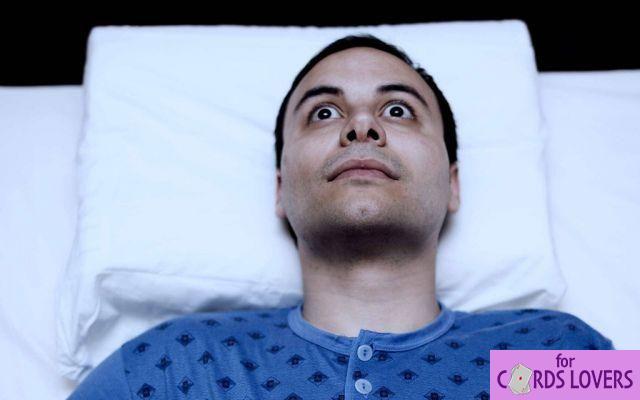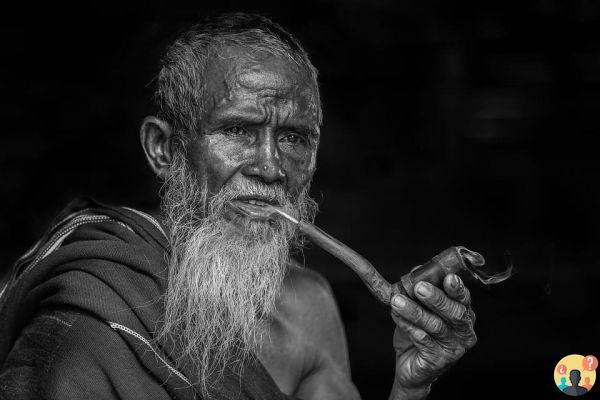
The "official" answer comes from documented experience: it's 264 hours, or about 11 days. This figure is due to the world record set by teenager and high school student Randy Gardner in 1965. But that same year, candidates emerged claiming to have exceeded this threshold.
Even today, other candidates claim to have managed to stay awake longer than Gardner. The most recent candidate is an Englishman who filmed himself 266 hours without sleeping. The highest authority in matters of world records, namely the Book of Records, does not help in this case: for years it has given up recording new records in this field because of the possibility that the person who embarks on such adventures take health risks. This is why Gardner will always be the "official" bearer of Sleepless World Time.
How long can we live without sleep? The consequences of lack of rest
It is known that Gardner was no exception and others may have endured a similar period without sleep. Some volunteers of scientific experiments have managed to spend between eight and ten days without falling into the arms of Morpheus, yes, under careful medical supervision. None of these participants reported any medical, neurological, sensory or psychological problems after the test. Throughout the study, however, deficits were observed which increased over hours and days. According to the subjects themselves, their ability to concentrate and perceive had been reduced and they felt more apathetic, in addition to showing alterations in other mental processes. But these symptoms disappeared in all participants after two nights of restful sleep.
The testimonies of soldiers who stayed awake four nights in a row during the fighting provide more information in this area. Also that of patients with manic disorders who, without taking medication, went three to five days without sleep.
In fact, doctors have long taken advantage of a positive effect of lack of sleep: through the so-called sleep deprivation therapy, psychotherapists ask patients suffering from depression to spend a night without sleep, because it has become too late. that this measure can temporarily benefit the mood of some affected.
Yet more difficult than answering the question about the world record for staying awake is defining what it means to “be awake,” says chronobiologist J. Christian Gillin of the University of California, San Diego. As we have seen, prolonged sleep deprivation in healthy people, in addition to inducing altered states of consciousness of all kinds, causes frequent "dreams of a few seconds", i.e. short episodes in which sleep is imposed on the person, as well as the partial or total loss of cognitive or motor control of what is happening. This causes tired airline conductors or pilots to fall asleep and, in the worst case, a car or plane crash. These events occurred frequently during the Second World War, after the mobilizations.
Record holder Gardner, who stayed awake for days on end, also showed increasing neurological impairment: at first he had trouble recognizing objects clearly, later he showed memory gaps and fluctuating moods. . At the end of his torture, he was barely able to act.
And the long-term consequences? Rodent experiments have revealed that continued lack of sleep can lead to death. In 1983, Allan Rechtschaffen of the University of Chicago kept awake rats that he placed on a turntable in a container of water. As soon as they fell asleep, the researcher woke them up. At all times, he recorded the animals' brain activity. At the end of the experiment, the reason for the murine deaths could not be unequivocally determined. Even so, it is likely that they died of utter exhaustion and metabolic overload. The question that remains is whether the stress of the experiment did not decisively influence the results.
On the other hand, a long sleep deprivation does not always lead to death. It is suspected that newborn dolphins and killer whales can go an entire week without sleep. Migratory birds on their long-haul flights are also awake for a long time.

Can you die from lack of sleep?
In humans, rare diseases are striking, shedding new light on our need for sleep. In Morvan syndrome, a particular form of neuromyotonia and characterized by symptoms such as muscle spasms, pain, excessive sweating, weight loss, periodic hallucinations and insomnia.
French researchers observed a similar case in a 27-year-old patient who had been deprived of sleep for a few months. During this period, he did not feel sleepy or tired; He also wasn't in a bad mood or anxious, or that his memory had worsened.
But almost every day, between 21:00 p.m. and 23:00 p.m., she experienced a phase of about 20 to 60 minutes during which she had acoustic, optical, olfactory or tactile hallucinations, and often associated with pain and blood circulation problems. fingers and toes. More recent studies show that Morvan's syndrome is linked to attacks by serum antibodies on specific potassium channels in cell and nerve membranes. The association of this phenomenon with sleep behavior is not yet clear.
A similar phenomenon occurs in the rare fatal (or fatal) familial insomnia, an autosomal dominant disorder, in which the patient often dies after six to thirty months without sleep. Perhaps the name of this "deadly insomnia" is not very accurate, because the death of the affected person results from multi-organ failure and not from sleep deprivation.
Although these types of special cases do not offer a telling answer to the question of how long we can stay awake, they do reveal that sleep itself is not important for survival: there are no cases known in which it was possible to demonstrate that lack of sleep caused the death of a subject, says Gillin. After all, sleep is, as dream researcher Wilse Webb (1920-2018) called one of his works, "a benevolent tyrant": he can be repelled, but never defeated.


























